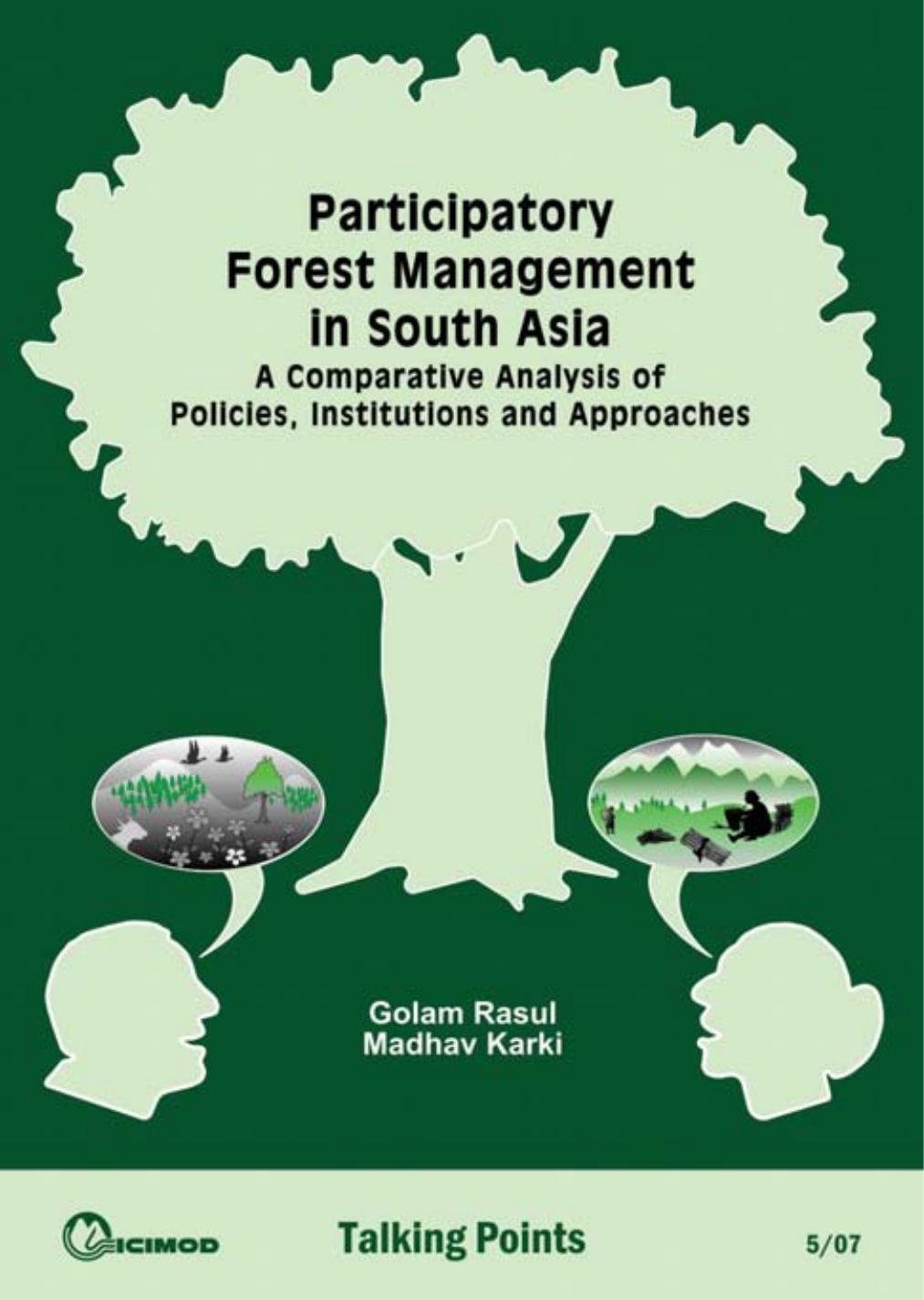
Several participatory forest management approaches have emerged in different countries in South Asia in the effort to develop an effective institutional framework and mechanisms for the management of forest resources. These different approaches have different features, characteristics, and degrees of participation by local forest users, and thus different implications for the management of forest resources and the livelihoods of forest-dependent people. This discussion paper makes an attempt to analyse the four participatory forest management approaches adopted in Bangladesh, Bhutan, India, and Nepal on the basis of primary and secondary information The models are compared and contrasted using specific criteria such as level of institutionalisation, tenurial security, degree and quality of local participation, decision-making authority, rights and obligations of stakeholders, benefit sharing arrangements, and actual practices. Measures to overcome weaknesses and to promote participatory forest management are suggested.